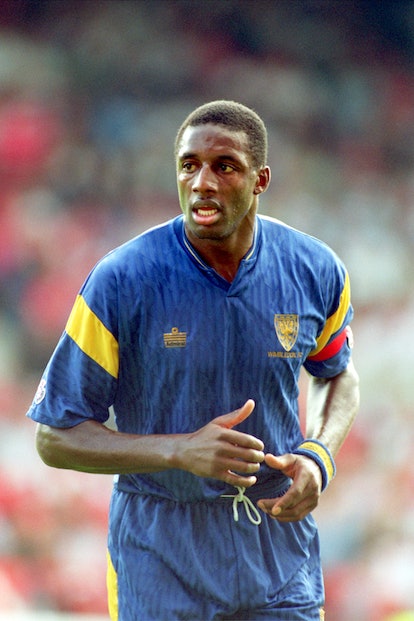
I want to talk to you about the germination of the idea for Snatched. Can you bring us back to the moment you thought about it?
Back in May, I had the opportunity to pitch this film and that was the day that the Parental Rights in Education Act, otherwise known as the “Don’t Say Gay” bill, was making national news. Political and corporate leaders were issuing hollow statements talking about, “Oh no, we love our LGBTQ+ employees and family members and friends,” while actively supporting measures that would cause harm to people.
And I turned to my partner and I said, “Gosh, wouldn’t it be funny if a kid came out as gay to his parents in a horror movie, but the horror is that they were over-enthusiastic about it?” And then from there, I kept riffing off of all the different ways I could both subvert horror tropes and then acknowledge what real horrors are to queer people, which aren’t shadows and things that go bump in the night, but a society that’s not listening to them.
I quickly realized it was an alien story, both because I think queer people often feel like aliens in their own world, but also because it was a way for me to play with the feeling of waking up the next morning and your parents acting different towards you. Joey has a line in the film where he says, “I’m no different than I was yesterday.” He repeatedly says, “Just listen to me.” The parents aren’t listening to their son, they’re centering themselves and their wants and their needs over and over again.
The Body Snatchers mythology originated in my hometown of Marin County, just north of San Francisco, a historically liberal enclave. Every 10 to 15 years since the ’50s, there’s been a body snatchers movie. Starting back in 1956, which was an allegory for McCarthyism, the ’70s, post-Vietnam, post-counterculture.
Funny enough, I was just watching the Queer for Fear series, and someone said that the Body Snatchers stories are always a Rorschach test of the times. I thought, ‘Wow, we haven’t had one of these stories in a while!” And we haven’t flipped it. Every Body Snatcher story has always been dead-eyed emotionless, once an alien double has been made of you. I thought, well, what if it was the opposite? What if in this Twitter culture, in this day and age of 21st-century identity politics, it actually went the other way? That when an alien made a double of you, they were overly emotional, they were quick to anger, they were quick to sadness?








